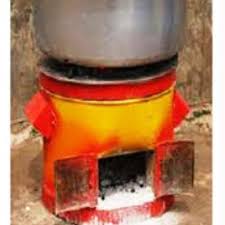Your cart is currently empty!

“A Look into Uganda’s Resources and the Challenges in Kyaka II Refugee Settlement”
By Manzi BIRAGUMA, Youth Skills IQ/Energy Essentials: Youth in a Power-Driven World

Energy is an indispensable resource in Uganda, driving economic activities, powering homes, and supporting basic needs like cooking, lighting, and heating. Like many other developing countries, Uganda relies on a mix of energy sources that include biomass, hydroelectric power, and increasingly, solar energy. In rural and refugee-hosting communities, however, access to sustainable and clean energy remains a significant challenge.
Primary Energy Sources in Uganda
In Uganda, energy sources are broadly categorized as:
- Biomass – Comprising 90% of Uganda’s total energy consumption, this includes firewood, charcoal, and agricultural waste.
- Hydroelectric Power – Accounting for a large portion of Uganda’s electricity grid, it is a cleaner alternative to biomass but has limited reach in rural areas.
- Solar Energy – With the potential to serve remote areas not connected to the national grid, solar is increasingly regarded as a viable energy source.
- Fossil Fuels – Mainly used in transportation, fossil fuels are relatively minor but contribute to urban energy consumption.
Each of these energy sources comes with its own set of environmental, social, and economic implications. Biomass, for instance, is highly accessible but unsustainable in the long term due to deforestation and environmental degradation.
Energy Challenges in Kyaka II Refugee Settlement
Kyaka II Refugee Settlement, located in western Uganda, is home to 141,000 refugees from various neighboring countries. As the settlement grows, so does its demand for energy. Currently, the primary energy source in Kyaka II is biomass, mainly in the form of firewood and charcoal. These biofuels, though convenient and cheap, have dire consequences for the local environment, as they lead to rapid deforestation and degrade the land surrounding the settlement. Trees are cut down at an unsustainable rate to meet the community’s energy demands, causing loss of biodiversity, soil erosion, and climate change impacts.
The demand for biomass in Kyaka II, also places a burden on the host community; as both residents and refugees compete for the same limited resources. Deforestation affects local water cycles, reduces soil fertility, and threatens the livelihoods of those who rely on the land for agriculture.
Initiatives to Address Biomass Dependency

Fortunately, there are some ongoing initiatives in Kyaka II to reduce dependency on biofuels and mitigate the impact on the environment:

- Economic Stoves – Efficient or “economic” stoves have been introduced to reduce the amount of firewood needed for cooking. These stoves require less fuel to generate the same level of heat, thereby conserving energy and reducing the pressure on surrounding forests.
- Briquetting – Briquettes, made from compressed agricultural or other organic waste, offer an alternative to traditional charcoal. Briquettes burn cleaner, emit less smoke, and can be produced from waste materials, providing a sustainable energy option and reducing reliance on wood-based fuel.

These innovations are a step forward in addressing biomass dependency. By decreasing the amount of firewood required per household, they help to preserve the local ecosystem and create a healthier environment for community members.
The Role of Solar Energy

A fortunate opportunity in Kyaka II, is the availability and utilization of solar energy, particularly for lighting. Solar energy is a clean, renewable source that offers a sustainable solution, for the energy needs of refugee communities and their host communities. Several organizations and NGOs have already introduced solar lamps and small solar systems in Kyaka II, illuminating homes, streets, public spaces like church premises or clean water access points, health care facilities and schools, and enhancing safety at night.
To convey clean water from treatment facilities to distribution points within Kyaka II Refugee Settlement, efficient solar pumping systems play a critical role. It ensures that processed water is promptly and safely transported to various access points throughout the settlement, making clean water more readily available to residents.

While solar energy is primarily used for lighting, its potential applications in the settlement could expand significantly with further investment. Solar power systems could support water pumping for agriculture, communal refrigeration, and even small-scale industry if larger installations are introduced.
Future Efforts to Meet Energy Needs Sustainably
As Kyaka II continues to grow, ensuring access to sustainable energy for the settlement’s residents and the host community is crucial. Several key areas for further action include:
- Expansion of Solar Power – Scaling up solar installations to power communal facilities, such as clinics and schools, and to provide household energy beyond lighting.
- Promotion of Briquetting Enterprises – Supporting local entrepreneurs to scale up briquetting production would not only provide alternative fuel but also create employment opportunities.
- Training in Sustainable Energy Practices – Educating residents about sustainable practices, including the benefits of briquettes and efficient stoves, could foster greater community adoption and reduce energy demand.
- Reforestation Programs – Replanting trees around the settlement could help counteract deforestation and restore the local ecosystem. Reforestation could be integrated into community initiatives, where refugees and local residents work together to nurture a shared environment.
Conclusion
Addressing energy needs sustainably in Kyaka II is essential for both the wellbeing of its residents and the surrounding host community. By reducing reliance on biomass, increasing solar energy access, and supporting innovative solutions like briquetting, Kyaka II can take meaningful steps toward sustainable energy. Collaborative efforts between NGOs, government agencies, and the community are vital to ensure energy solutions that meet current needs without compromising future generations. Sustainable energy initiatives in Kyaka II not only improve living conditions for refugees but also strengthen resilience in the host community, fostering a more balanced, eco-friendly approach to energy for all.
Manzi BIRAGUMA, Youth Skills IQ/Energy Essentials: Youth in a Power-Driven World

Youth and Finance Series #3: The Parable of Tamaa and Mnyenyekevu
By Muhammad JESSE, Mentee Writers Hub/Youth and Finance In the heart of Kyaka II Refugee Settlement, where life is both a struggle and an opportunity, lived two young…
Understanding Mental Health Conditions in Refugee Contexts (Part III): Case Studies I & II
PTSD and Depression: Differences and Similarities in Symptoms By Christella LUMAMBA, Mentee Writers Hub/GBV & Youth Rights Awareness In refugee settings, mental health conditions such as Post-Traumatic Stress…
Understanding Surface Tension
Discover the Magic of Everyday Science: Embrace the Wonders of Real-World Physics By Claude TUYISHIME, Mentee Writers Hub/Real-World Physics Have you ever marveled at how water droplets stay…
- Energy Essentials: Youth in a Power-Driven World/Manzi BIRAGUMA, Real-World Physics/Claude TUYISHIME
Turning Solid Waste into Gas for Home, Industrial, and Vehicle Fuel Use
Youth, Let’s Lead the Way in Turning Waste into Wealth and Clean Energy! By Claude TUYISHIME, Mentee Writers Hub/Real-World Physics Introduction Solid waste from homes and industries is…
Youth and Finance Series #2: Mastering the Art of Budgeting
It’s Never Too Early to Start Budgeting for Anything You Plan to Spend Money On! By Muhammad JESSE, Mentee Writers Hub/Youth and Finance Introduction In the journey…
Youth and Finance Series #1: The Saving Mindset
Building Habits, Empowering Futures, and Securing Opportunities By Muhammad JESSE, Mentee Writers Hub/Youth and Finance Financial literacy is a critical skill for youth, especially those in refugee…
5 responses to “Powering Our Future: Exploring Energy Sources and the Journey to Sustainable Solutions”
Keep posting more than that 💥🦜oh brother
Thanks!
We are pleased to hear that. We are under way writing other articles, meanwhile you can read other articles under the rest of categories
This is real nice
Thank you

Leave a Reply